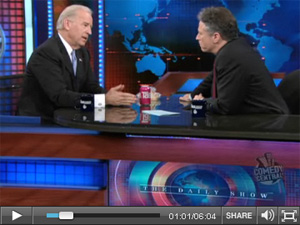warren buffet

A SPECTER IS haunting the neoliberal establishments of Europe and the Americas: populism. And the intelligentsia beholden to those establishments is pitching a hissy fit in response.
You can see it happening via publications such as The Atlantic —with headlines such as “What Populists Do to Democracies” and “How to Be a Populist”—and The Guardian, which has devoted an inordinate amount of its cyberspace to “Team Populism,” a transnational network of academics studying the rise of populist movements and leaders. A search of my university library database shows 1,259 books with the word “populism” in the title published just since 2016. The Guardian even offers a “How Populist Are You?” quiz.
The current populist moment gives the international commentariat a lot to chew on. For starters, there is so much disagreement about what “populism” even means. It’s hard to see how a word regularly applied to Donald Trump and Bernie Sanders can mean much of anything at all. In their work, the Team Populism people try to sort out this left-right mishmash by detaching the phenomenon of populism from its associations with socialism and ethno-nationalism. They consider populism not an ideology for governing but a strategy for attaining and keeping power. According to their June 2018 policy paper: “[Scholars] call something populist if it expresses the belief that politics embodies a struggle between the forces of good, understood as the will of the common people, and the forces of evil, associated with a conspiring elite.”
It’s a good sign we’ve entered the election silly season when pundits are arguing against “fairness.” What’s next, apple pie? (Motherhood, of course, is already a battleground of the “mommy wars”—Lord help us!)
The Democrats are trying to take the pro-fairness side of the debate, in particular around the issue of tax rates for the wealthiest Americans. The so-called Buffett Rule—named after billionaire Warren Buffet, who pointed out the injustice of his paying a lower tax rate than his secretary—became a key talking point the week before April 15.
Here’s how President Obama put it: “Right now, the share of our national income flowing to the top 1 percent has climbed to levels we haven’t seen since the 1920s. And yet those same people are also paying taxes at one of the lowest rates in 50 years. That’s not fair.” (The Occupy movement arguably deserves most of the credit for that framing of the issue.)
The president’s political opponents were quick to dismiss the focus on tax fairness as campaign rhetoric aimed more at the fall elections than any meaningful policy goals. It’s a safe assumption that pretty much anything between now and November has that partisan goal in mind, and—perhaps not surprising—fairness polls well.
But the critics didn’t stop there. Conservative columnist Charles Krauthammer, for instance, called the Buffett Rule “nothing but a form of redistributionism,” and said that focus on the tax fairness issue “is an exercise in misdirection.” Minority Leader Mitch McConnell said that having the rich pay a higher tax rate “won’t take a single person off the unemployment line.” (It also won’t end the war in Afghanistan, he didn’t add.) Others brought out the tired accusation of “class warfare.”
 Joe Biden admitted last night on The Daily Show that the billions of dollars we've spent on big bank bailouts is "socialism for the rich, and capitalism for the poor." No kidding. There's been much consternation related to the bailout of Wall Street. And even though ...
Joe Biden admitted last night on The Daily Show that the billions of dollars we've spent on big bank bailouts is "socialism for the rich, and capitalism for the poor." No kidding. There's been much consternation related to the bailout of Wall Street. And even though ...